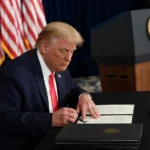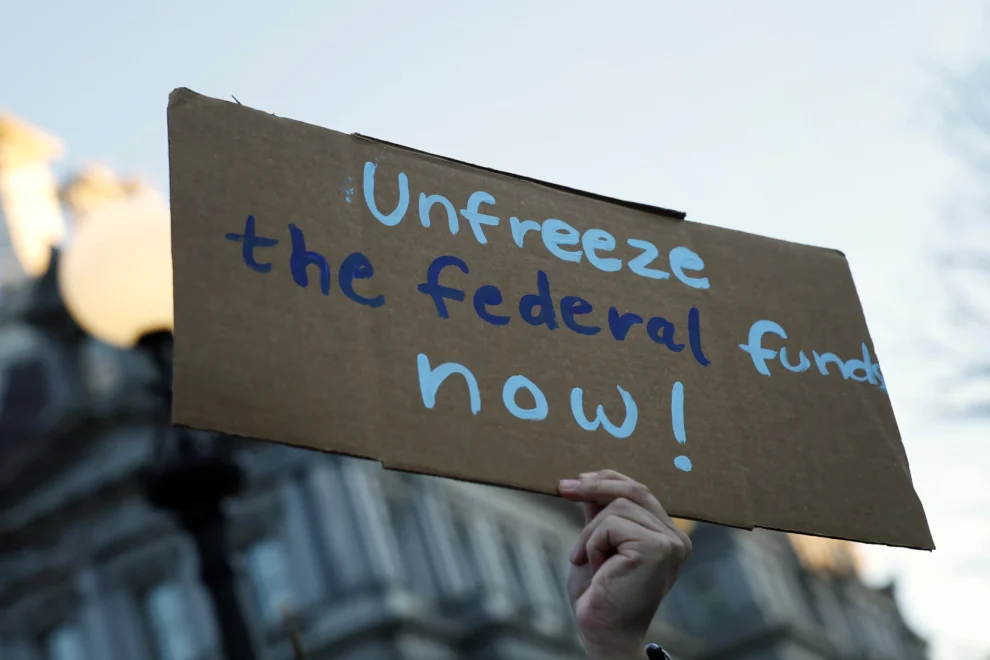On January 27th, Donald Trump’s administration issued an order to freeze millions of dollars in research grants, affecting universities, medical institutions, and private research firms across the nation. The suspension of these research grants pose significant challenges to various fields including public health, climate science, and technological innovation in the U.S.
A primary reason given by the Trump administration for freezing research grants was a desire to prioritize budgetary austerity and reduce the federal deficit. The federal budget is a powerful tool for policymakers, and freezing funding in certain sectors is often seen as a way to reallocate resources toward other priorities. Trump’s administration aimed to reduce government spending and sought to make significant cuts to various government-funded programs, including scientific research. In particular, federal agencies such as the National Institutes of Health (NIH), the National Science Foundation (NSF), and the Environmental Protection Agency (EPA) were impacted by budget freezes and cuts. Additionally, Trump was a vocal critic of certain areas of research that did not align with his political agenda, particularly research on climate change. His administration often questioned the validity of climate science, leading to the withdrawal of the U.S. from the Paris Climate Agreement in 2017. The decision to freeze grants for research on climate change and environmental issues reflected his skepticism towards the scientific consensus on global warming. This move was also part of a broader effort to shift federal funding away from studies that might challenge policies favorable to the fossil fuel industry and the economic interests of specific sectors.
This freeze has been met with harsh criticism from the scientific community. Leading researchers from top institutions have expressed alarm at the decision’s potential to hinder progress in critical areas such as cancer treatment and pandemic prevention. Dr. Helen Matthews, a renowned epidemiologist at the University of California, San Francisco, told The New York Times that the freeze “could set back years of research on public health and vaccine development.” Even more broadly, critics argue that the freeze reflects a troubling pattern of disengagement from science within the Trump administration. “We’re facing a global climate crisis, health emergencies, and technological disruptions. Freezing funds for scientific research now is like ignoring a fire while it’s still burning,” said Dr. David Moore, a climate scientist at MIT.
In addition to the immediate concerns surrounding ongoing research projects, the freeze also raises questions about the future of scientific innovation in the U.S. Critics point to the growing global competition in areas such as artificial intelligence and renewable energy, where nations like China and the European Union have ramped up their research investments. As the U.S. enters a new era of political and scientific uncertainty, the freeze on research grants may just be the beginning of a larger debate about the role of science in shaping the future of the nation. With the country’s global competitiveness at stake, one can only hope that this freeze will be a temporary setback rather than a long-term hindrance to scientific advancement.







